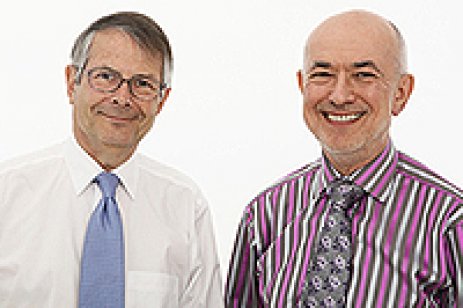 My involvement with Vin Murria came about through Elderstreet where she is a Director and I am an adviser to one of their funds. Indeed, our investment in Computer Software Group (CSG) – where Michael Jackson served as Chairman and Vin Murria as CEO - was the most successful for the fund when it was sold to HG Capital in March 2007 for c£100m. CSG was a consolidation play in the legal, not-for-profit, membership arena – and it worked very well for shareholders. Jackson and Murria stayed with the new entity which merged with Iris and was then sold to Helman & Friedman for c£500m – in hindsight, probably at the top of the market!
My involvement with Vin Murria came about through Elderstreet where she is a Director and I am an adviser to one of their funds. Indeed, our investment in Computer Software Group (CSG) – where Michael Jackson served as Chairman and Vin Murria as CEO - was the most successful for the fund when it was sold to HG Capital in March 2007 for c£100m. CSG was a consolidation play in the legal, not-for-profit, membership arena – and it worked very well for shareholders. Jackson and Murria stayed with the new entity which merged with Iris and was then sold to Helman & Friedman for c£500m – in hindsight, probably at the top of the market!
Well, now the duo are at it again. This time in the UK primary care arena. Via an AIM ‘shell’ called Drury Lane Capital plc, they have acquired (actually it’s a reverse takeover) Adastra for £12.2m (£4.8m in cash, rest in shares). Drury Lane (which I understand will change its name to Advanced Computer Software plc when the deal is consummated) is raising £14.6m by way of a placing of 86m shares at 17p.
Adastra was setup in 1994 by Lynn Woods and James Berry (both of whom will continue post the acquisition). In 2002 they acquired their main competitor, Owl Software. In the year to 29th Feb 08 Adastra had revenues of £10.6m, PBT of £1.7m and 150 staff. A significant majority (>70%) of revenues comes from recurring support revenue and from software sales to existing clients. Adastra’s main product is a specialist call management, data distribution and clinical recording systems for GP out-of-hours or urgent care. Adastra has more than doubled its revenues in the last five years.
Adastra has an almost clean sweep of out-of-hours systems in the UK with no direct competition.
What next?
If ever there was a UK market ripe for consolidation it is the Out of Hospital Care area (which goes under the acronym OoH)
Firstly, there are a whole array of relatively small companies who service the area. For example, EMIS (revenues c£50m) is one of the main suppliers of primary care/GP systems but partners with Adastra on out-of-hours. There has been speculation in the past that EMIS might itself purchase Adastra – maybe it will be the other way around now!
Secondly, the benefits of ‘cross-selling’, which would accrue if the group was enlarged, are obvious. Don’t just think doctors – think dentists, opticians, pharmacists, walk-in-centres, polyclinics (the latest DoH buzzword) etc
Thirdly, the current disarray in the NHS IT Programme might play well with a consolidation exercise. The NHS has recently given greater flexibility for local trusts to work with local suppliers of their choice. This can only benefit the smaller established suppliers over the last remaining LSPs (BT and CSC).
Lastly, users of such systems are very loyal. Training and implementation costs are high so users only change as a last resort. That means that recurring revenues are both secure and significant – exactly the kind of model of businesses that work in a consolidation play.
Wednesday, 23 July 2008
OoH…Vin is back!
Clearly, this is a development I will watch with great interest. If anyone can pull off a consolidation play in the primary care area, Vin can.
Posted by
Richard Holway
at
21:35
![]()
Subscribe to:
Post Comments (Atom)


No comments:
Post a Comment